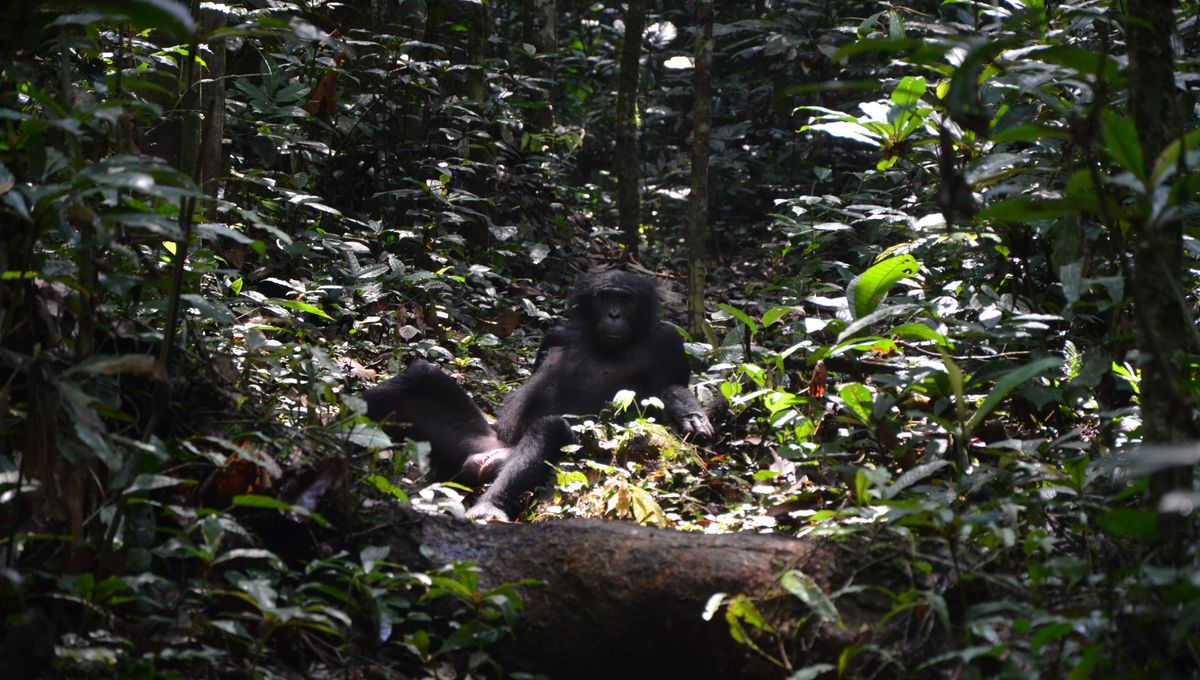
Bonobos have a bit of a reputation for being the chillest of all the great apes, with an attitude of peace and love rather than the violent ways of their chimpanzee cousins. But new research is set to turn that assumption on its head, with male bonobos found to be frequently more aggressive than male chimpanzees.
The team looked at three bonobo (Pan paniscus) groups in Kokolopori Bonobo Reserve in the Democratic Republic of the Congo and two chimpanzee (Pan troglodytes) communities at Gombe National Park in Tanzania. Researchers concentrated on 12 bonobos and 14 chimpanzees within these groups and followed these individuals for entire days, making a note of how often they had aggressive interactions and who these aggressive interactions were with. They also noted whether the interactions involved fighting or biting, or whether they were non-physical.
This type of study technique is known as a focal follow, and the study used 14 community-years of focal follow data for their research.
“You go to their nests and wait for them to wake up and then you just follow them the entire day – from the moment they wake up to the moment they go to sleep at night – and record everything they do,” says anthropologist and lead author Maud Mouginot, now at Boston University, in a statement.
The researchers found that, contrary to what they expected, the male bonobos were more aggressive than chimpanzees. The bonobos had 2.8 times as many aggressive encounters and three times as many physical interactions, with higher rates of female-male and male-male aggression than chimpanzees.
Male bonobos were pretty much only aggressive to other male bonobos, whereas the chimpanzees were also aggressive to females. Male chimps were typically found to be aggressive in groups of males, which researchers think might be part of the reason the chimpanzees were found to be less aggressive overall.
“The idea is not to invalidate the image of bonobos being peaceful – the idea is that there is a lot more complexity in both species,” continued Mouginot.
These male groups, known as coalitions, have the potential to cause more injuries and weaken the group as a whole against other threats. Bonobos, by contrast, had almost exclusively one-on-one interactions, but have never been observed to kill each other and are not thought to fight over territory.
“Chimpanzees and bonobos use aggression in different ways for specific reasons,” says Mouginot.
In both chimps and bonobos, it seemed that the meaner the male the more success they had with mating. This was extra-surprising to see in both species, since they have very different social structures. In chimp communities the male-dominated hierarchies can form coalitions that force females into mating. However, in bonobo groups, the females outrank the males in a co-dominant social dynamic.
The team found data that showed the two males with the highest rate of contact aggression in the Kokolopori bonobos had sired 80 percent of the offspring.
“Male bonobos that are more aggressive obtain more copulations with females, which is something that we would not expect,” said Mouginot. “It means that females do not necessarily go for nicer males.”
The study is published in Current Biology.
Source Link: Bonobos: The "Hippies" Of The Primate World? Not So Much, Says New Study